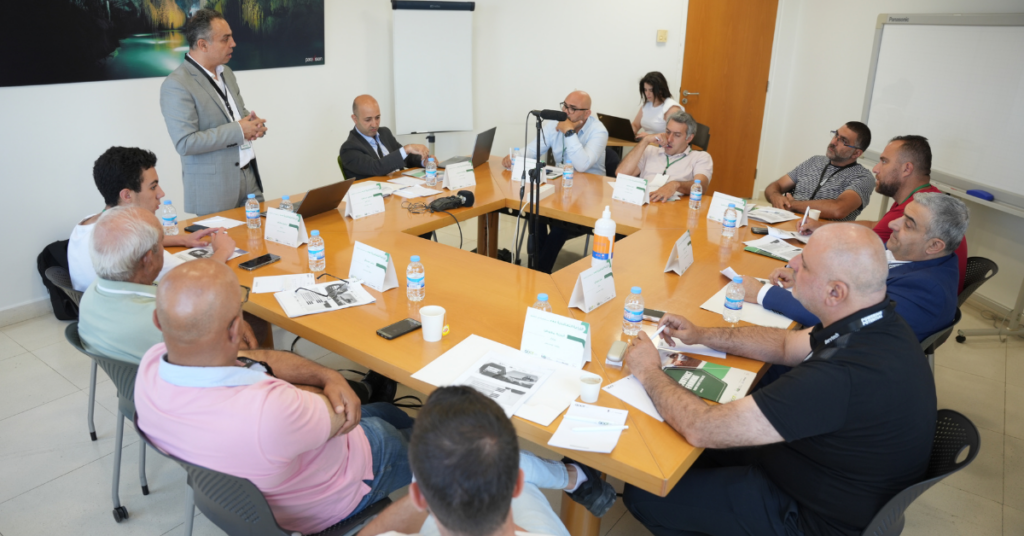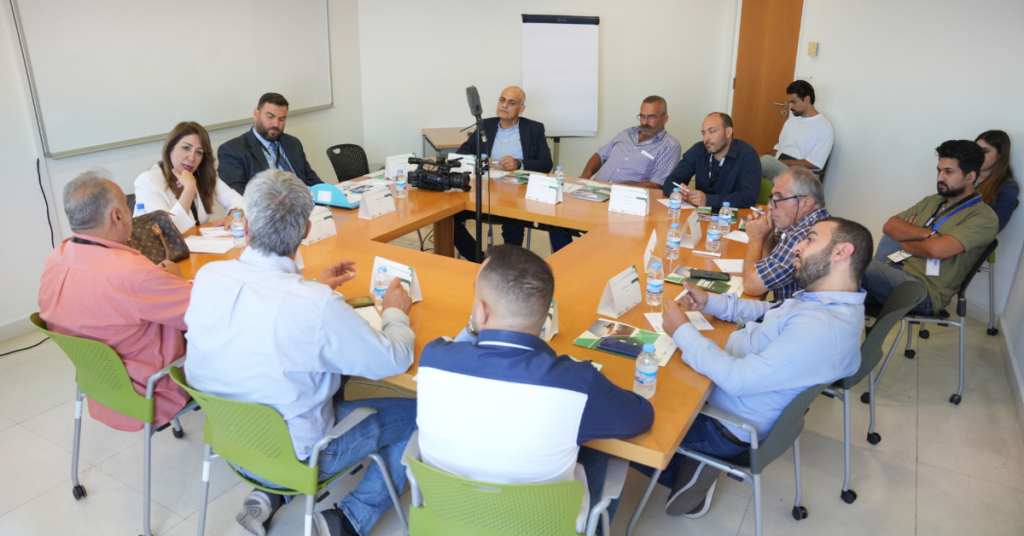Berytech brought together farmers, processors, technical experts, and legal professionals in three roundtables for the ‘Contract Farming: From Theory to Practice’ event held on June 27, 2023.
The aim was to engage the 45 participants to explore the incentives and disincentives of contract farming in Lebanon while comprehending the fundamental elements of a contract and emphasizing the significance of establishing reliable relationships to institutionalize this practice.
The event was organized by QOOT as part of the Food System Challenge program, managed by the World Food Program and Berytech, and generously funded by BMZ.
A Winning Business Model
The event comes as an essential second edition following the first organized in November 2022 that tackled the topic from a participatory approach.

Berytech gathered processors, policymakers, experts, and farmers to conduct an active discussion during which they exchanged thoughts, concerns, and aspirations. The objective was to frame contract farming in Lebanon, introduce it to the public from its different aspects and dimensions, and connect with the parties at the heart of the practice: farmers and processors. It reflected the strong inclination from both parties, particularly the farmers, to embrace contract farming, acknowledging concerns on different aspects of contract farming, including pricing, commitment, trust, liabilities, referencing points, and conflict resolution.

This year, the event delved deeper into the subject and framed the topic properly to converge all efforts to democratize and institutionalize contract farming in Lebanon, not only as a practice but also as a winning business model for both parties.
The practice would alleviate strain within the food value chain, securing a proper workflow within the sector, revitalizing it, and helping to place the marginalized farmer at the heart of the deal.

The Effective Implementation of Contract Farming
“The event organized last year clarified the concept of contract farming, its functioning in Lebanon, and its practical application. Today, with the second edition, we have organized discussion sessions that include farmers, exporters, merchants, and producers. They gathered together in the presence of legal and technical experts to discuss the contracts currently being applied, identify their challenges, and suggest relevant solutions to modify them for fairness to both parties involved,” explains Nivine Chaaban, Program Manager of the Food System Challenge.

The three roundtables tackled three strategic value chains: Fruits and Vegetables, Wheat and Cereals, and Tubercules. The event’s objectives were to understand the current economic, social, and legislative gaps and bottlenecks hindering the effective implementation of contract farming within the value chains of interest, initiate an effective dialogue between relevant stakeholders, voice concerns and opinions of all stakeholders, and discuss the underlying opportunities of contract farming, including pricing strategies and the contract itself.

Said Gedeon, Deputy General Manager of the Chamber of Commerce Zahle and Bekaa, confirmed: “Deploying Contract Farming has always been challenging in Lebanon. We were not able to build, for a very long time, a sustainable relationship that allows both the farmer and buyer to profit. The roundtables gathered different stakeholders within the value chain in a conversation to voice out very freely the challenges that are hindering the development or adoption of contract farming systems in the future. We talked about the motivators that might help the farmer and the buyer or the manufacturer to adopt this practice. Price was a topic that had a lot of weight in the conversation, with a focus on what is fair for the farmer and buyer.”

The Food System Challenge
The Food System Challenge is implemented by the World Food Programme (WFP) and Berytech through support from the German Federal Ministry of Economic Cooperation and Development (BMZ).
The program’s main outcomes are enhanced food security, a well-functioning local food system, enhanced efficiency and resilience of cooperatives and SMEs working across different streams of the food systems, and increased employment opportunities, especially for women and vulnerable individuals.










